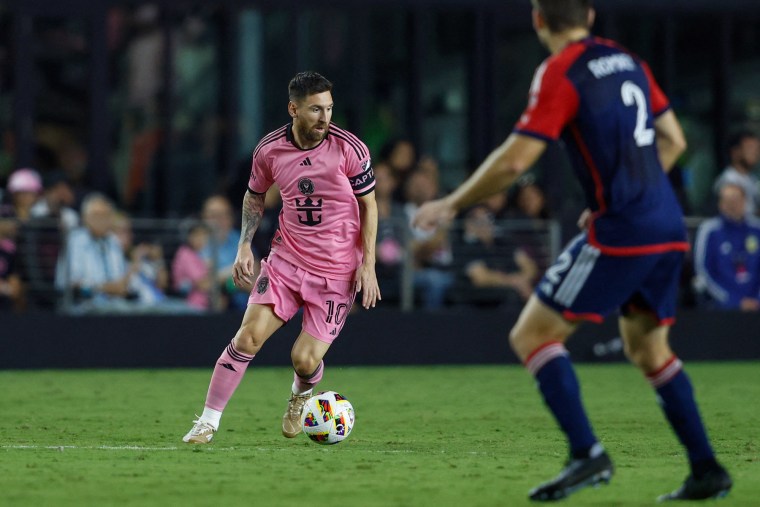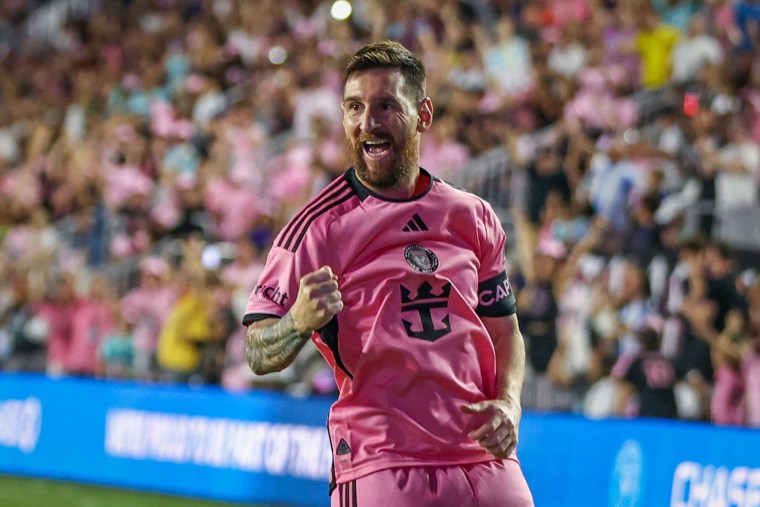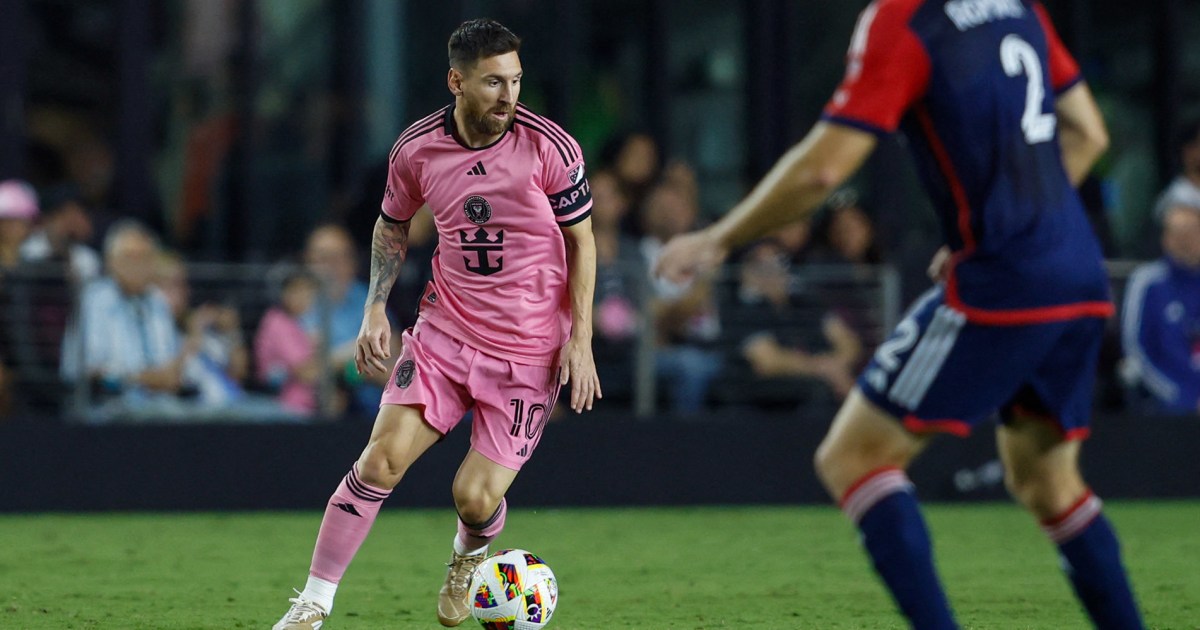Major League Soccer scored several regular season records, including for attendance and sponsorship, thanks in part to international superstar Lionel Messi — and corporate strategy.
The MLS has been nabbing well-known athletes like Messi and Luis Suárez and leaning on the sport’s growing popularity within the U.S. in a bid to solidify its fanbase after nearly three decades of league play. It’s even created a corporate team to help clubs implement new business strategies.
It appears to be paying off. Nearly 11.5 million people attended MLS matches during the regular season — which ended this past weekend — the most in its history, according to data from the league. That’s up 5% from last year, and 14% from 2022. Each match during the 2024 season averaged 23,234 attendees, the highest ever for the regular season.

While those stats pale compared to other U.S. professional sports leagues — the National Basketball Association had more than 22.5 million attendees during the 2023-2024 regular season, for example — the MLS seems to be building momentum.
Last year, the MLS’s Inter Miami signed Messi, which caused a surge in attendance, jersey and other product sales, and overall fanbase engagement. The halo effect from Messi, often referred to as the greatest of all time, seems to have held even with Messi playing fewer games this season due to an injury.
This past weekend Inter Miami ended the season with 74 points, breaking the MLS record for most scored in a season, and Messi notched a hat trick for the first time with the U.S. league. The MLS postseason begins this week.
But it wasn’t just on-the-field talent that made the difference.
This was the first full season that Chris McGowan served as executive vice president and chief club performance officer at the league since joining in June 2023. McGowan was hired to lead the new unit, which serves to advise and develop strategies to help clubs perform better, particularly on the business side.
While most of this season was focused on building out McGowan’s team, he said they also developed a strategic plan when it comes to identifying focus areas and creating relationships with clubs. McGowan’s role is akin to a consultant, making suggestions that the teams can choose to implement or not.
For example, McGowan and his unit helped the New York Red Bulls this season “with some decisions on premium seating that they’re going to launch in their stadium.”
“We foster continued growth by being a great resource for clubs in areas like quickly and efficiently sharing best practices,” said McGowan. “Being able to quickly get information for clubs to make business decisions… these are things that maybe weren’t happening as systematically and as efficiently as they are now.”
Kicking off new records
The bigger audience is drawing bigger sponsorship dollars.
The league signed 18 new sponsorship partners this season between the MLS and Soccer United Marketing (SUM), the commercial arm of the MLS. Sponsorship revenue for the league and SUM was up 13% year to date, and sponsorship revenue at the club level was also up 13% for the same period.
League- and club-level sponsorship revenue both reached records.
Messi’s Inter Miami jersey continued to be a fan favorite, ranking as the highest-selling jersey in the league. It was also No. 1 globally for Adidas in jersey sales of individual players, according to the MLS.

Meanwhile, its social media following grew faster than any other major men’s North American sports league on TikTok, Instagram and YouTube, according to the league. On TikTok, followers were up 26% since the beginning of the year. On YouTube, followers were up 21%, and on Instagram, they were up 10%.
Inter Miami led the league as the most followed North American sports team on TikTok with 9.4 million followers, according to the MLS. It was the third most-followed North American sports team on Instagram with 17.2 million followers.
Like other sports leagues in the U.S., the MLS has been focusing on growing its audience and presence internationally. Earlier this month it inked an agreement with German digital media platform OneFootball to provide highlights, stats and other content to a global audience.
When it comes to TV viewership — a marquee stat for most other professional sports leagues in the U.S. — the MLS is in something of a league of its own. The league has an exclusive media rights deal with Apple, meaning most of its matches are only available through MLS Season Pass on Apple TV, a separate subscription alongside the Apple TV+ streaming service.
Viewership data isn’t available for MLS Season Pass, but Apple executives have said on public calls that the audience has risen since Messi joined the league.

Leave a Reply